Reading comprehension Normal Punctuation Worksheets for Ages 6-8
5 filtered results
-
From - To
Enhance your child's reading skills with our Reading Comprehension Normal Punctuation Worksheets tailored for ages 6 to 8. These engaging worksheets combine exciting stories with essential punctuation practice, helping young learners improve their understanding and retention of text. Designed to foster critical thinking, each worksheet encourages children to answer questions and identify punctuation marks, refining their reading comprehension abilities. With colorful illustrations and age-appropriate content, these resources make learning fun and effective. Perfect for both classroom and home use, our worksheets provide the ideal foundation for your child’s literacy journey, ensuring they gain confidence and proficiency in reading. Get started today!
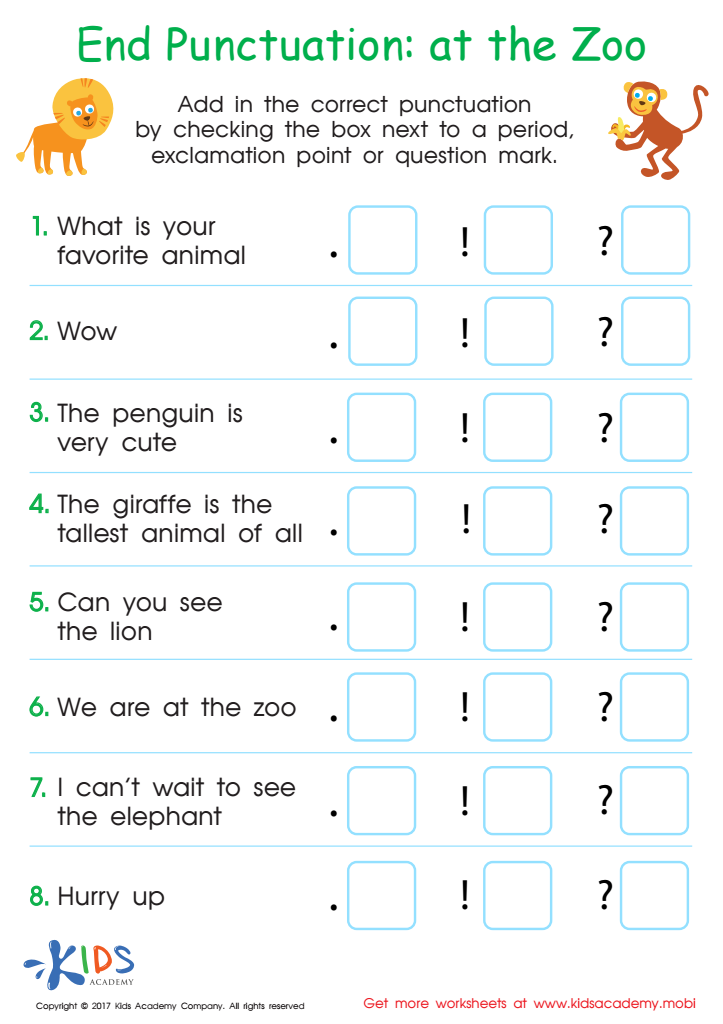

End Punctuation: At the Zoo Worksheet
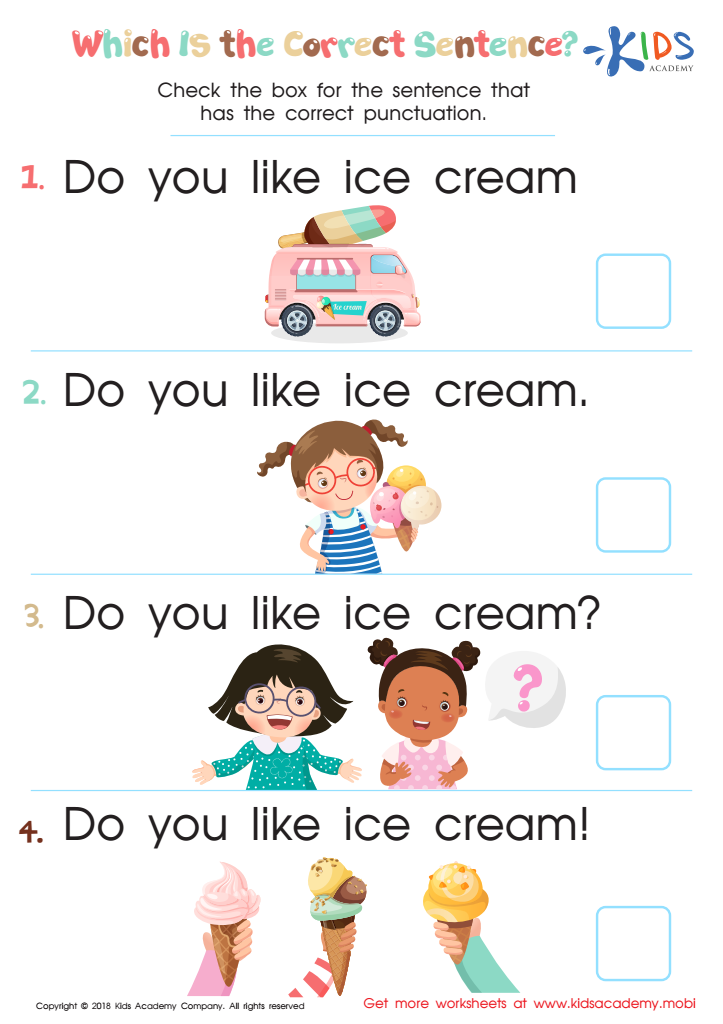

Which is the Correct Sentence? Worksheet
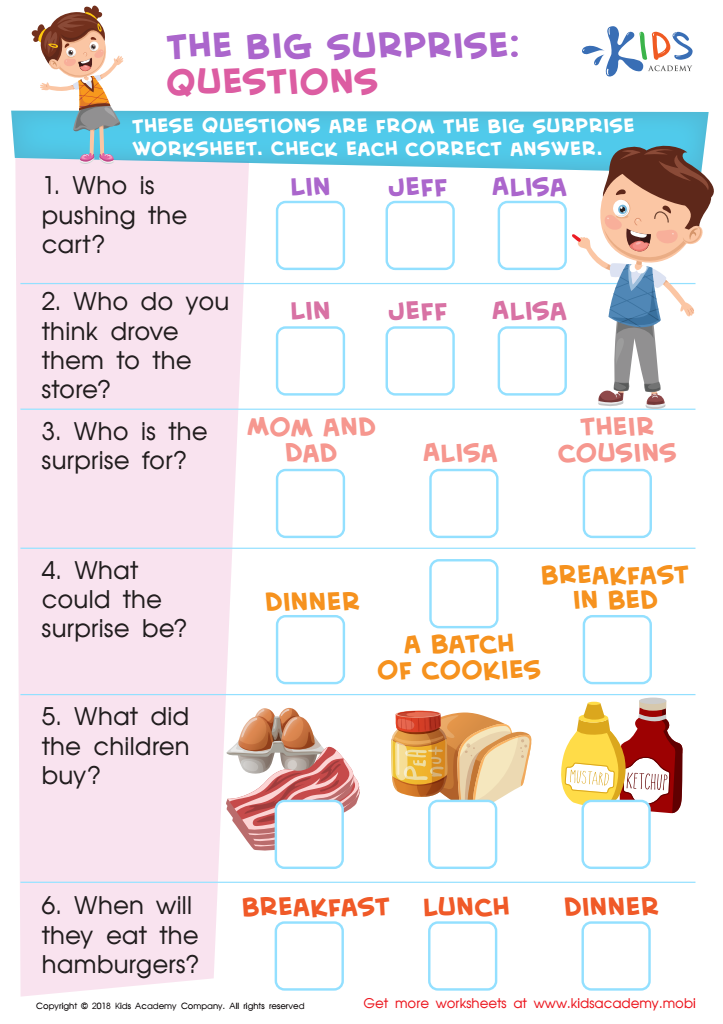

The Big Surprise: Questions Worksheet
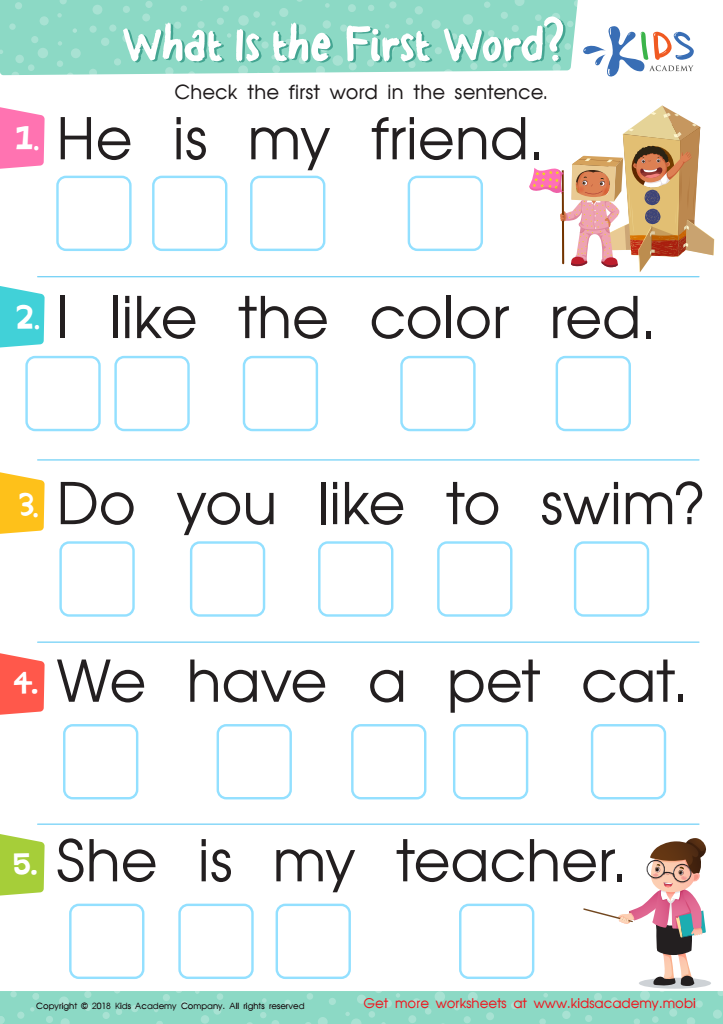

What is the First Word? Worksheet
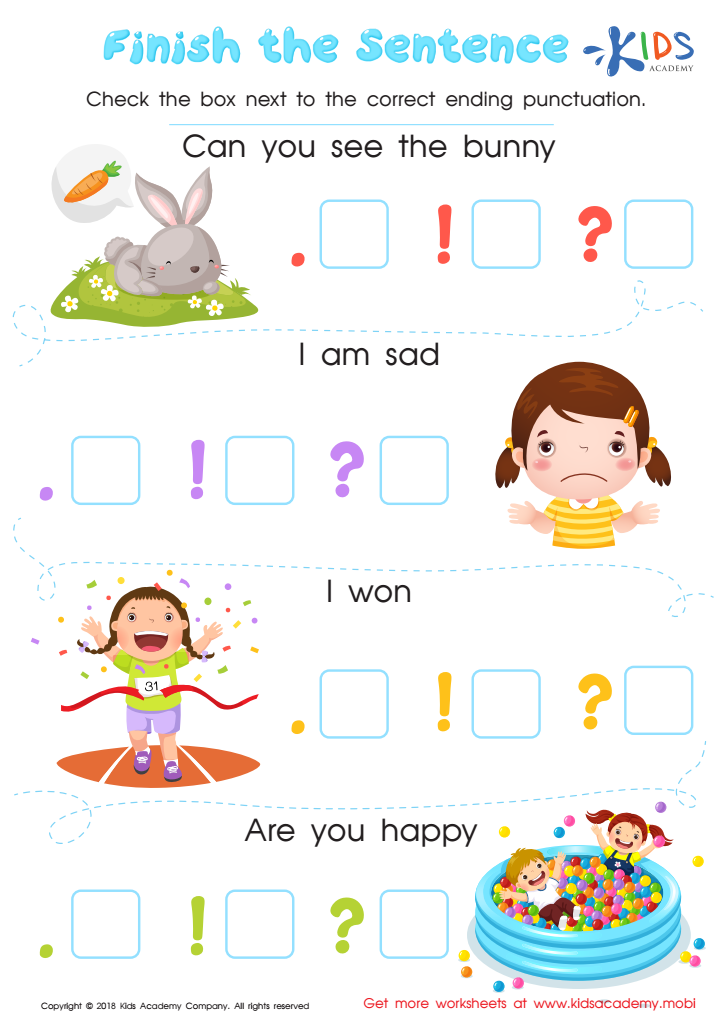

Finish the Sentence Worksheet
Reading comprehension is a crucial skill for children aged 6-8, and both parents and teachers should care deeply about its development. At this age, children transition from learning to read to reading to learn, making comprehension essential for academic success. When students understand what they read, they can engage with a variety of subjects, build critical thinking skills, and enhance their vocabulary. This foundational ability not only impacts their school performance but also their self-confidence as learners.
Monitoring reading comprehension helps identify areas where a child may struggle, allowing for timely intervention. If teachers and parents recognize these challenges, they can work together to create supportive strategies tailored to the child's needs. Encouragingful reading habits at home, such as discussing stories and asking questions about the content, fosters a love for learning and greater retention of information.
Moreover, proficient reading comprehension encourages better communication skills, making children more effective at expressing their thoughts and ideas. As comprehension skills grow, so does the child's ability to relate stories to real-life experiences, aiding emotional and social development. Ultimately, prioritizing reading comprehension equips children with the tools they need for lifelong learning and success.
 Assign to My Students
Assign to My Students














